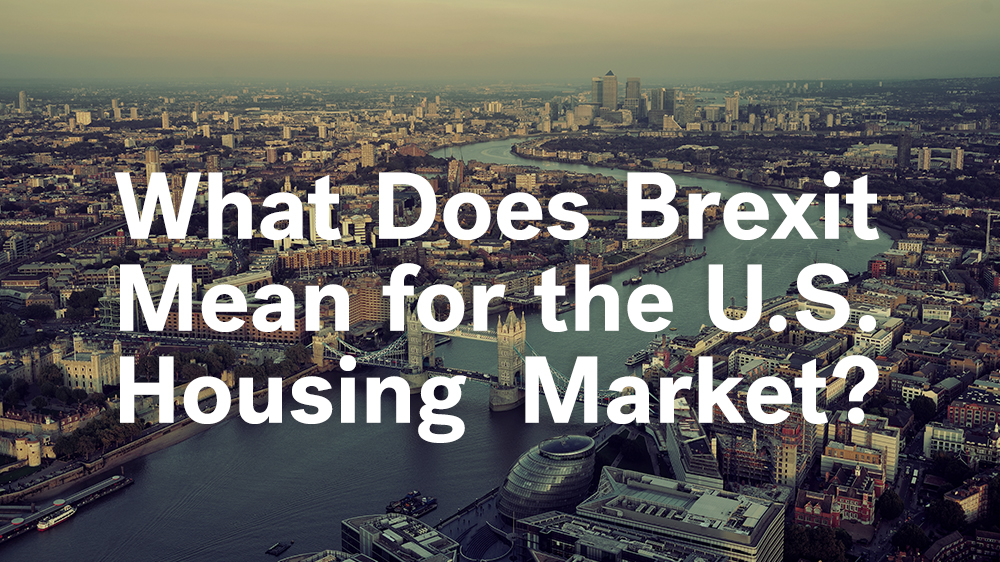Britain’s decision to leave the European Union is roiling global markets. But what, if anything, does it mean for the U.S. housing market?
The answer is no one really knows, and that’s the problem.
Simply put, the United Kingdom’s exit from the EU, or “Brexit,” is a global macro-economic event that will, over time, have smaller but not necessarily insignificant, economic impact here. Collectively the EU, at nearly $700 billion annually, is our biggest trading partner. Britain alone, at more than $100 billion annually, is the seventh-biggest. The EU is the world’s biggest economy. Should it stumble badly, trading partners would also take a fall.
In the short term, for the U.S. housing market, the most direct threat isn’t from trade. It’s about the financial system and banking. Every housing market, including the United States’, is sensitive to interest rates. How central banks, such as the Federal Reserve respond to the Brexit fallout –by keeping rates low, for instance – would constitute impact.
Today, as Trulia Chief Economist Ralph McLaughlin points out, U.S. debt is viewed as a source of security for global investors. As nervous investors rush into the safety of U.S. securities, it puts downward pressure on rates. That means borrowing will be cheaper for buyers in the immediate Brexit wake.
“While the departure of the UK from the European Union has driven down the 10-year bond, and thus mortgage rates, we expect them to rebound later in the year as uncertainty over the economic consequences of the departure lifts,” McLaughlin said.
Those “economic consequences” may indeed be manageable. Or, they could be dramatic. Some have predicted the Brexit will lead to the dissolution of the EU. That scenario likely would trigger an economic recession in Britain and/or the EU. It’s not a stretch to think an EU collapse could spur a global slowdown — even a crisis. The U.S. economy is slowly, steadily growing. But a global recession that hammers U.S. exports could drag us down with it. That’s just one scenario. Again, no one really knows.
McLaughlin said that even if the global economic conditions do not deteriorate into recession territory, investors buying U.S. currency could also have an impact.
“As the U.S. dollar rises against other currencies, goods made in the U.S. for export look increasingly expensive,” he said. “Given recent slow domestic GDP growth, a decrease in trade could slow the domestic economy even further.”
The bottom line is, while potentially damaging, none of this should alter home-buying or selling decisions today. After all, as McLaughlin said, the immediate impact is essentially cheaper money.
And even while lower rates may save borrowers a little money each month, as Erin Lantz, Zillow’s vice president for mortgages said, “if you couldn’t afford a house a few weeks ago, you still can’t.”
But as the not-to-distant past reminds us, a recession brings lower income and higher unemployment and that puts a housing market at risk. Anyone considering a housing move should keep an eye on the news out of Europe and its effect on U.S. growth.
The uncertainty of Brexit should mean vigilance for U.S. home buyers and sellers.


